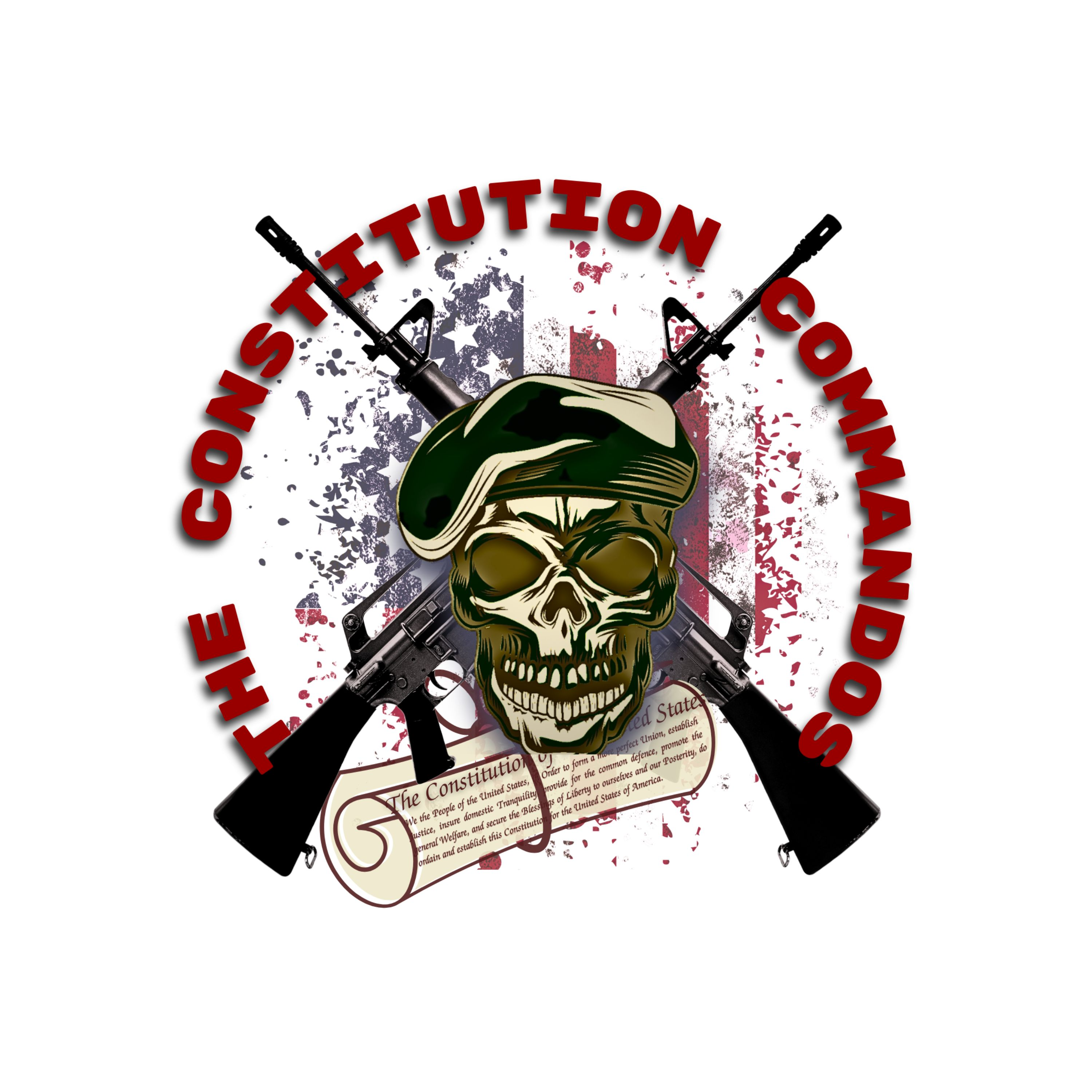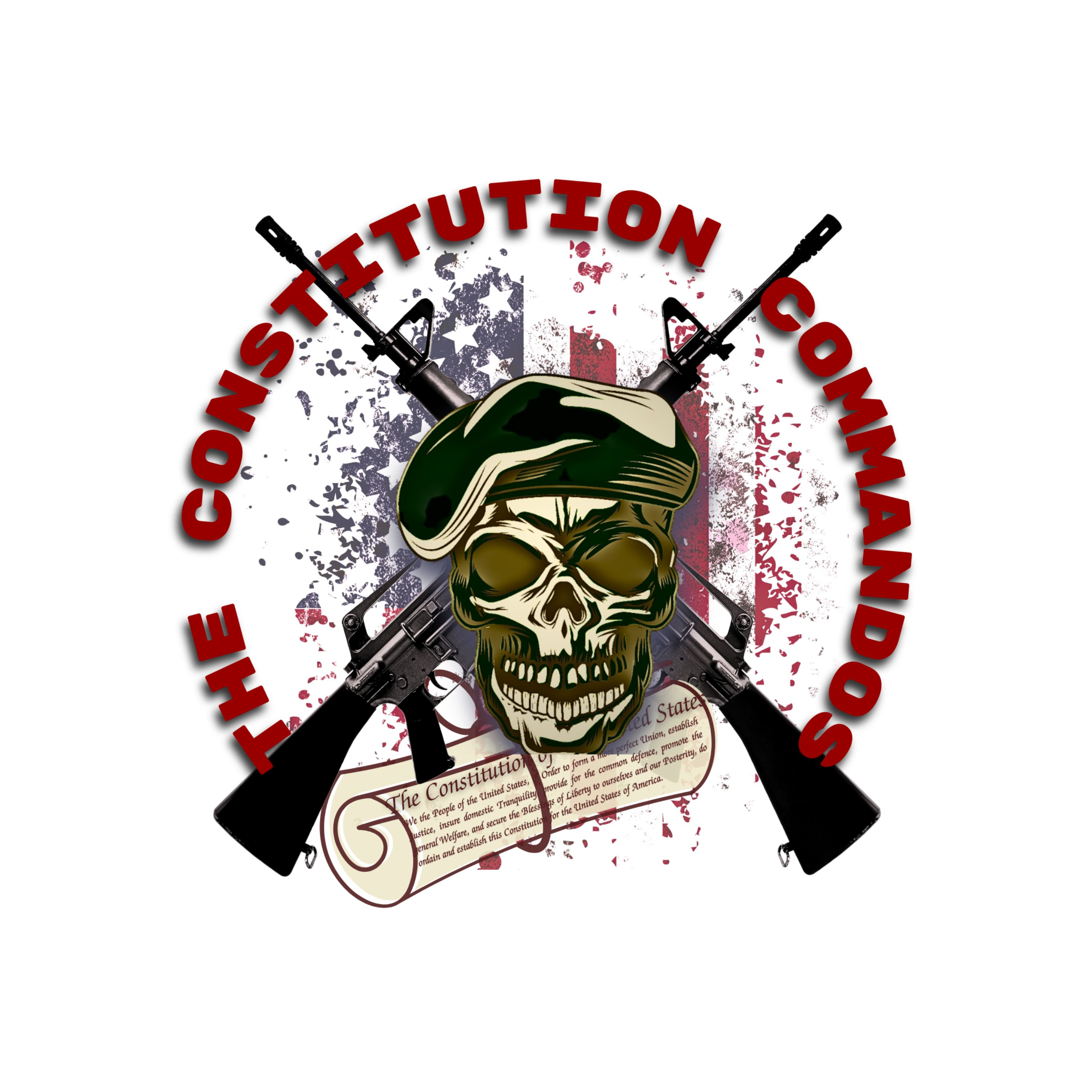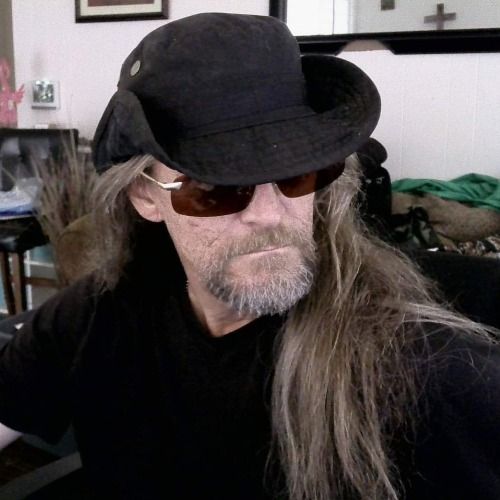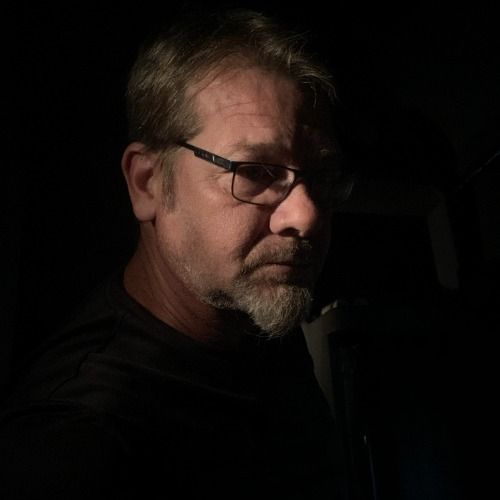Chaos and Confusion
S1E4
Chaos and Confusion
[00:00:00] Patrick Williams: The younger generation needs to quit tampering with the definitions of words. You know? I mean, I just wanna tell 'em to go stand in the corner, be quiet, and let the adults have the conversation, because it's, it's no different than a child trying to dictate to mom and dad what's gonna happen in the house.
[00:00:17] It don't work that way. You, you don't know anything.
[00:00:20] Chris Williams: Right.
[00:00:21] Patrick Williams: You know? You go over there and be
[00:00:23] quiet,
[00:00:25] Chris Williams: be seen, and not heard.
[00:00:27] Patrick Williams: Yeah.
[00:00:28] Chris Williams: Yeah, on the fairness and equality thing, I mean, that's man, that is plastered all over our constitution. you know, it's even in the Declaration of Independence.
[00:00:39] I mean, all you gotta do is read the Declaration of Independence and you'll see exactly what we're dealing with right now is what we fought against 247 years ago. And, you know, like we talked about before, I mean, you know, settlers didn't land here in 1600 and something. They, they've been here since, like, what was it, late 14 hundreds, early 15 hundreds.
[00:01:03] So at least 150, 200 years before we became a nation. Yeah. but the 13 colonies, they weren't even, they weren't even United States at the time. They were just 13 English colonies. Yeah. you know, all 13 colonies had enough of a problem. It was time to start, it was time to make a change, you know, and that's what we're faced now, but now it's people inside the country that are, you know, causing the problem.
[00:01:34] Patrick Williams: And see, that's another thing I don't quite get, and I'm not trying to be the asshole here or nothing, but if you hate this country so
[00:01:45] much,
[00:01:46] Chris Williams: find another one.
[00:01:48] Patrick Williams: Yeah. Find another one. But you're trying to change. basic fabric of our country. Don't, you don't do that.
[00:01:59] Chris Williams: Right?
[00:01:59] Patrick Williams: There are many countries out there that will cater and provide to you the type of government that you're wanting to impose here. You know that? They already exist in other parts of the world. Go there.
[00:02:14] Chris Williams: Well, I hear Afghanistan's got their doors open, .
[00:02:18] Patrick Williams: Oh yeah.
[00:02:19] Chris Williams: But, uh, you look at Russia and you look at, look at uh, Germany. You look at China, you look at these countries, they started out not as they are now. You know, Russia was only a Soviet socialist republic for about 60 years before the socialism collapsed.
[00:02:38] Patrick Williams (2): Yeah.
[00:02:40] Chris Williams: And then you got,
[00:02:41] you know,
[00:02:42] Germany, believe it or not, Was a free nation before Hitler. Yeah. And Hitler was just a pawn of the Club of Rome and the committee 300 and the British India group. these countries have been changed by outside sources, which is exactly what's happening to us. I like to say people don't see it because I didn't see it. I didn't see exactly what was going on, even though I thought a lot of stuff that was going on was stupid and outta place. I didn't understand what it was. I didn't understand where it was coming from. Just like growing up in our family, you know? I mean,
[00:03:21] that's the way it was at home. We didn't know what the heck was going on. Who was the origin of the problem? You know, we didn't know. And. Whole time we're living with it, you know, .
[00:03:36] Patrick Williams: Yeah.
[00:03:38] Chris Williams: And it, it bothers me more than anything when I hear somebody say, you know, let's not even talk about it. It's no big deal. I don't like, I don't understand it anyway, so let's just not talk. What do you mean? Let's see. That's the problem you're ignoring the fact that your house is being pillaged and you don't care
[00:04:00] Patrick Williams: well in the back of their, it won't ever collapse and this, that and the other. which is just absolutely
[00:04:07] ludicrous.
[00:04:08] Chris Williams: Well beyond ludicrous, you know, um, I watched a documentary this week on the people who were, I guess I should just say the, um, perpetrators and four presidents assassinations, and actually only two of them had motive. And, you know, were actually found out that they were involved in the plot to kill a president.
[00:04:39] And the rest of it is shrouded in mystery. You know, the, the deal with, um, you know, Ronald Reagan's attempted assassination, you know, that guy, what was his name? Sirhan Sirhan was the one that shot Bobby Kennedy. And there's actually reports now that Sirhan Sirhan wasn't even close enough to kill Kennedy. Did you know that?
[00:05:07] Patrick Williams: Yeah, I think I've heard some stuff about that, but I haven't ever really looked into it.
[00:05:13] Chris Williams: That actually came from the testimony of one of, of the, um, I, I guess the secret service that was protected Kennedy at Bobby Kennedyy. But, uh, he says her hands, her hand was about a foot and a half away from Kennedy, but the shot was within an inch of Kennedy.
[00:05:32] That's a, that's a great deal of distance when you're talking about prosecuting somebody, you know. Yeah. And, Sirhan Sirhan was also part of the test subjects. That were under the, um, the, uh, MK Ultra testing. So he was, he was programmed for that. But as the reports are given now, Sirhan sir ain't gonna have been the one to have killed him because he was too far away, which makes me believe that it was probably one of Bobby Kennedy's bodyguards that did the job.
[00:06:12] Cause her hands, her hand was failing on his, you know, . Yeah. And you know, I've said for a long time, at least 25 years, that it was the Maia and the CIA that orchestrated John Kennedy's assassination, and everybody kept defaulted to this. what report was it? The, um, the Warren Commission, if you read the Warren Commission, if you have half a working brain cell that Warren Commission, you can identify as BS from the beginning.
[00:06:52] None of it makes any sense if you look at all the evidence that was presented. And then all the other evidence that came out later leans way away from the Warren Commission report. But you know, McKinley, let's say it was McKinley and Garfield, were the two presidents that were assassinated that, people did not want alive. Now what these presidents all had in common was money. It all ties back to the money. None of these presidents wanted the central bank to be involved in our financial system.
[00:07:26] Yeah. So they were all assassinated.
[00:07:28] and you know, as much as I loved Reagan, as he turns out, his own VP was part of the problem. And I didn't realize it until I had read the committee of 300 thing that, um, that Reagan didn't even pick his cabinet. I think he's the only president in history that didn't pick his own cabinet.
[00:07:48] Patrick Williams: Gotta keep the elite, sir man. Gotta keep the certain people in certain places. If you want
[00:07:55] ultimate power.
[00:07:57] Chris Williams: Well that's right. But you know, , when I started reading that, that uh, cause spirit is hierarchy, I'm thinking how is it this small group of, we wealthy people, I understand they're wealthy, everything's got a price, most people have a price. But how does this small group of wealthy elite manage to control so much? I guess it's easy when you're somebody like JP Morgan or John d Rockefeller and you. Really, you know, they, uh, it kind of hit the nail on the head when they decided they wanted to take control and turn the drug trade into their major profession.
[00:08:44] Yeah. Cause that's essentially what is taken down every single country that has fallen to these people.
[00:08:52] Patrick Williams: Oh, yeah. Cause it destroys the fabric of the nuclear family.
[00:08:56] Chris Williams: Oh, yeah. I mean, and it becomes a civil disaster.
[00:09:03] Patrick Williams: Yeah.
[00:09:07] Chris Williams: You know, Bob had said something to me one time. I didn't really like too much of what Bob said because I just didn't like Bob. But he said he did say a few things that made sense. But one of the things that he said, Was in reference to the drug problem. He said, I think the government just needs to legalize all drugs and hire more waste management.
[00:09:34] Patrick Williams: Yeah. Well,
[00:09:36] Chris Williams: that doesn't really pick the problem, but , you know what I'm saying? Just by virtue of his saying that he realized that there was a drug problem, you know? Yeah. But legalize all drugs and then hire more embrace management. But then on the other side of the coin too, if you think about it, if all drugs were legalized, it'd probably be less, fewer people doing them.
[00:09:59] That is a common theory.
[00:10:03] Well, I mean, it goes to human nature. I mean, you know, even Paul wrote in the Bible that, you know, before the law, the sin was not imputed. Without the law, there is no sin. But then when the law came, he says, my flesh rose up against me and started trying to disobey the law, you know, put down the laws in place.
[00:10:29] So, I mean, based on what I learned in math, you know, if this is true, then the opposite is also true. So, I mean, if we made it all legal, less people would do it. But because we, you know, it's not supposed to be done, it's supposed to be illegal, you know, more people are doing it. But the bad part is our government's the one that makes it illegal, and then they turn around and beat it.
[00:10:54] And that's a problem that I, that I have too. Cause, uh, you know, I've been saying for years the CIA was what brought the drugs into our country in the first place, and
[00:11:04] Patrick Williams: Oh, yeah.
[00:11:06] And they used impoverished African American communities to get it into the country. So,
[00:11:13] and I mean, what man's trying to get a job is presented with a proposition of doing something illegal to feed his family. But don't worry about it. We'll protect you. Who wouldn't jump on that? Just trying to feed my family. Right?
[00:11:30] Just need to understand the principles of limited government, small government.
[00:11:41] Well, I'm afraid there's been so much of the, uh, the psychological attacks on our people now that, I mean, if, if you look around, I mean, based on what I read in that hierarchy, um, conspirators hierarchy, I was thinking about this, this. Just working on the website, it's, they've got to be 20,000 different plugins that you could put on a website and a lot of 'em do the same things.
[00:12:12] But you know, it's like you got so many decisions to make, you don't know, and you don't really know enough about the decisions you're trying to make, that you end up doing what I've ultimately done for nine or 10 months. Now it's crashed my site at least three or four times a month. I don't know, I don't, I don't know enough about what I'm doing to, you know, to pick the right tools to do what I'm doing.
[00:12:38] And now I'm just aggravated to the point. I'm ready to give up. And that's really the way the whole country has been treated. You've been given so many decisions to make. It becomes overwhelming to the point you just give up. Yeah, but I mean, once
[00:12:52] again, that's on the people. Mm-hmm. , if the people would focus on the few.
[00:13:01] Like the main decisions are provide shelter, food, water, clothing. That's your main decisions. Well, how do you go about doing that? You get a job. Well, they need to start. People need to just simplify their lives a bit. If they can simplify their
[00:13:21] lives
[00:13:23] and look at the necessities and not the wants so much.
[00:13:30] I'm not saying stay away from what you want. I mean, hey, I want things I'm gonna get 'em at at some point, but number one, I'm not consumed with the thought of getting those sayings. And then when I do get those sayings, I'm not forgetting about the essentials. Right. I'm always going to, my focus is always based.
[00:13:55] Clothing, shelter, food, water. Yep. I mean, that, that's, if, if your job provides a greater income than what's required to provide those essentials, then you, you can enjoy those want s
[00:14:19] Chris Williams: because your needs are met.
[00:14:23] Patrick Williams: Yeah. But
[00:14:26] you, you just got so many people trying to keep up with the Joneses. I mean, like when we were kids, it wasn't just in our family, but we were taught that if you can't pay cash, you don't need it.
[00:14:41] We didn't, man, I didn't have credit until right before I bought my house.
[00:14:45] You know? I mean, well,
[00:14:46] Chris Williams: we weren't just taught that if you don't have the cash for it, you can't afford it. It was, if you don't have three times the cash it takes to purchase that item, you don't need it.
[00:14:56] Patrick Williams: Yeah. Don't get it.
[00:14:58] Chris Williams: You don't need it.
[00:15:01] Patrick Williams: Well see. So many people have gotten into spending money that they don't have. Well, then their priorities have shifted from the essentials to trying to stay out of the hole.
[00:15:15] Chris Williams: Right.
[00:15:16] Patrick Williams: And, and
[00:15:18] Chris Williams: look, that just started when we were kids. Buy now, pay later.
[00:15:22] Patrick Williams: Yeah.
[00:15:25] Chris Williams: And that was, that's probably one of the things that I can identify is, I mean, that's probably one of the things that I could point.
[00:15:35] That I remember from in my whole life where I saw something, I just knew that was dangerous. Yeah. You know, and that was, that was probably the first thing I remember looking at it saying, oh, this isn't gonna be good. Because of what we saw at that point, I don't know if you remember, but when by now pay later started, you didn't have divorce court.
[00:16:02] You know if, yeah. I mean, how many times did we hear about somebody going to court to get a divorce and the judge sent 'em back home telling 'em to work it out? You know, divorce was not a thing, but by now, pay later, man. That just put a lot of the board's, attorneys in the business. Yeah. You know, then the mortgage companies, boy did they get that, and by now, paid later that.
[00:16:30] That was probably the worst thing that this country's seen in my lifetime anyway. But, um, of course, you can hear granddaddy say it TV was,
[00:16:40] granddaddy said the TV was the killer of the mind, and I think we're seeing the evidence of that now.
[00:16:47] Patrick Williams: Yeah. The dependency of the internet too. People have gotten to the point where I can ask the internet
[00:16:56] a specific question and it's gonna provide me a
[00:16:59] list of answers.
[00:17:01] But they don't, they don't apply to the question.
[00:17:05] Well, and, but the problem is it's taking away. People's research. Yeah. They, they're only opening the first or the second thing that comes up. You know, it used to be you would bust out an encyclopedia or go to the library or read periodicals, or you would, you know, read published papers.
[00:17:30] Right. And, you would just, through your research, then inherently you would run into opposing views. Mm-hmm. Now read one or two of the first things that come up on search for results. And they, and that's just the way it is now.
[00:17:48] Chris Williams: Right.
[00:17:48] You know, that may be one of the reasons the, uh, powers that be are having a struggle right now. Especially what we see in the Democratic Party in our country. You know, we said it several times that they're running scared. They, uh, you know, they've lost their minds because they can't do what they've been doing.
[00:18:09] But nowadays, you know, what do they call this now? The information age? Yeah. There's so much information going out. There are so many avenues to get it that, you know, when the, when all this came out with television and then personal computers and internet, you know, the powers of being, were able to get away with stuff a lot easier.
[00:18:35] Oh yeah. Cause there wasn't all this information available. So now it comes down to what, you know, I mean, we joke about it but don't believe you're lying eyes type stuff. You know, , I'm like, yeah, and we know you see the information, but yeah, don't believe that. Believe what we're telling you. That's the way it's always been.
[00:18:53] That's what you just need to keep doing. Just believe us and no, we don't
[00:19:00] I would like to see, I would really like to see people start waking up to the fact that, you know, and a lot of what, a lot...






